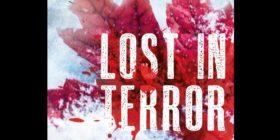Review: Available Light, New and Selected Poems by CP Surendran
Some poets scoot into the limelight; why or how is a mystery. Others hardly get an entry pass into the glow. What is it that attracts this beam of light — profile, a stint at Oxbridge, editorial contacts or sartorial panache? The limelight is not always a discerning critic. CP Surendran, despite a first-rate novel Hadal (which never got near a short list), five strong volumes of poetry and a stint as editor of a daily, DNA, hasn’t clicked with fame. (Incidentally, fame does not normally allow poetry in its parish, unless one is a film lyricist, a Kafi Azmi or Sahir or Gulzar, or one who was in contact with the Nehrus like Harvansh Rai Bachchan). For whatever it is worth, this reviewer will attempt to prove that Lady Limelight got it slightly wrong when it comes to CP.
Surendran, CP to friends, is an unlikely person to get notice. He is unorthodox, an introvert as a poet, and has a caustic view of his fellow men. In some measure, I am reminded of Aldous Huxley’s views in Ape and Essence:
The leech’s kiss, the squid’s embrace
The prurient ape’s defiling touch.
Do you love the human race?
No, not much.’
Surendran is not as much of a misanthrope as I am painting him out to be. He views life and the world not merely as a challenge but as something to be confronted, rock in hand. And yet, if one were to map his poems – the sea, his love for and differences with his father, his depression, the love poems, the bohemian outlook volitionally nursed by some of Bombay’s poets with a large chip on narrow shoulders (Jeet Thayil of yore also comes to mind), a bit of banter with drink and drugs — you get a sketch both of a life and an era.
Available Light, New and Selected Poems has a wonderfully detailed foreword by poet Ranjit Hoskote and a requiem-cum-tribute to Vijay Nambisan, poet and friend who died this year, by Surendran himself. Both these essays tell you about the lives of Bombay poets who lived on the fringes in the Nineties and earlier. This is a body of serious poetry where a talented poet is negotiating life, visibly circling past his neuroses, tapping now and then a jagged nerve of his past, and when outraged by a needless and cruel death like that of Mohammad Akhlaq, giving vent to his rage. As in all good poetry, the images as they roll down the lines have a logic and a nexus of their own. The poetry is under control and no poem is allowed to run away as it wills, like a vigilante mob. All is not bleak in this landscape, and we find him noticing beauty in a woman metalling a road or beating washing at the dhobi ghat. And his oeuvre is dappled with love poems, a few of them with a bleak line or two intervening, but love poems all the same. And after all, a volume is remembered by the images that light it up —‘a train blindfolded by a tunnel’ is just one of the nuggets dotted over these pages. And yes, like all fine poets he has to grapple with death — but that comes at the end of the tunnel, doesn’t it?
But to poetry. Some of the poems can be read as bulletins on a poet’s health. ‘Days narrow… nights short… At my window the creek climbs/ with the sun.’ Then you have to go over ‘a blood-brain barrier,/ Each guarded word/ A coded cry for help.’ The day ends ‘Last light reddening/ Receding waters / Revealing deep ruts, lanes’.
I lie down hands clasped
Behind my head
I listen to the blood
Flood and drain
Mind’s shadow land
Mirtaz, Daxid, Zapiz.
The last three are antidepressants. There you have it, the unspoken coded cry for help and a depressed poet gazing at the ceiling.
Silence plays a role with good poets. ‘Back to the silence thick as massed glass/ To first fish, time cutting teeth in the dark.’
Living with him could not have been easy: In the poem Two he says, ‘You shift in bed next to me,/ Your voice just right/ For weather reports, blight.’ Nuggets of wisdom come through the poem. ‘Each life prints/ its dictionary.’
Like any substantial poet, he has a feel for imagery. Take a poem like Dhobi Ghat. You wouldn’t expect much from it, would you? Yet ‘over wet steps the sun foams/ like soap; these slathered slabs,/Flown in by time; milestones/ From some laundered land.’
In Europe, just one long poem: David, Don’t be Sad, That Was a Dream would have made Surendran famous. It is a searing poem on the gas chambers. I can’t help quoting just one stanza:
Dawn rusts the barbs,
Sheaf of words,
Sheath and sword,
Melts snow red.
You sleep on a cow’s lunch
Under a sky in convulsions
Of black and white
Between the wings
Of crematorium crows.
The poem sears, as it should, and yet it has passages of beauty. Take the section Kristllnacht. You stayed on the mat/ long after the moon/ Filling the skylight/ Dragged its veil of gold/ over the night’s dead,/ The fires in hell stoked/ By a god fat as bread. There was a time you couldn’t write about the holocaust. Of course, Paul Celan, who was in Auschwitz as a child (his parents died), wrote famously about it. (Note how a horrific subject attracts Surendran).
Introspections sometimes can lead him off course. In a poem, Asthma, he says ‘I trace my anxiety/ To what I lacked/ When I was born/ in June/ In a room sodden/ Like a wet blanket.’
You come across a lot of playfulness. I may be misinterpreting a poem, but A Blow-by-Blow Account of a Boy Missing sets out, in near exhilaration. ‘When I stretched, the river surged/ when I set out the earth galloped.’ It ends with ‘I mated, mirrors went blind./ I rested, the breeze blew in masseurs./ I slept again, a child went missing.’ It could pass of for a poem on growing up, the child in him going missing. There are some lovely light poems like Each King in his Place. And there is no lack of irony, like the poem Family Court.
Surendran doesn’t put everything on the table. The reader cannot slacken his attention — you are not reading Chetan Bhagat, buddy. The reader needs to watch where the poem is taking him or her. And he does not end his poems as a geometry theorem does, with a QED. The end is smuggled in despite drink and depressant. For instance, anyone can rage. But it is the way one puts things across that matters. In the poem Head Count (on the murder of Mohammad Akhlaq,) the last stanza reads
Stick out a finger to the wind,
Cattle and gods, kettle and drums
The caravan takes count, and finds
The day clear, loud, shorter by a head.
Superbly done. May I advise Madam Limelight, dressed in her orange chiffon sari, to place CP Surendran with the very best of poets.
Keki N Daruwalla is a poet, short story writer and novelist.





Leave a reply